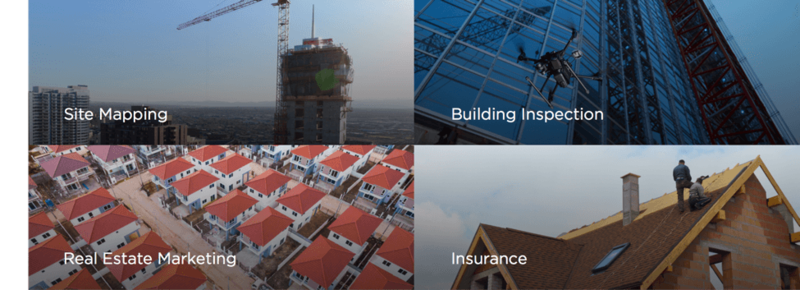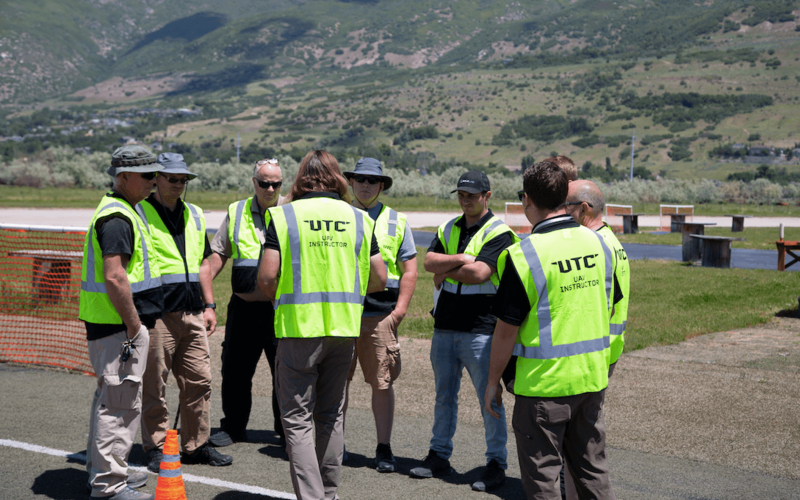How To Become A Professional Drone Pilot
Drone certification, the importance of training, and the commercial drone job market
In the United States alone there are over a 100,000 certified commercial drone pilots – and as more enterprises and organizations continue to adopt drone technology, the need for skilled drone operators will continue to rise, increasing the demand for professional, certified drone pilots more than ever before.
Getting Started – Know the Rules
Before you can join this global community of commercial drone operators, you need to know the rules of the game and follow the safety regulations designed to help pilots fly safely within their national airspace.
Next, determine what type of classification you fit under. In the United States, the Federal Aviation Administration (FAA) is the governmental body that is responsible for regulating the national airspace, and classifies drone pilots into three categories:
• Hobbyists – Includes drone pilots flying for recreational purposes
• Commercial users – Pilots that are flying with the intent of generating commercial value
• Government users – Any drone pilots flying for a government entity such as fire department, police department, non-profit or similar
Establishing which type of classification you fit under helps you better understand the rules and regulations that are applicable to you. For instance, hobbyists are only required to register their drones but can only fly for recreational purposes; commercial users need to follow the FAA Part 107 Guidelines but have no special authorizations; and government users (such as public safety), are required to have a Part 107 License and, are able to obtain a Certificate of Waiver or Authorization (COA), granting them special permission to operate outside regular limitations.
The Commercial Drone Job Market
With drone adoption accelerating at a rapid pace and expected to increase exponentially within the next 5 years, now is the time for new entrants to enter the industry.
For potential pilots looking for an entrepreneurial route, you can become a drone solution provider like RMUS, which not only provides industrial drone equipment across the agriculture, energy, public safety sectors and more, but the company also offers a variety of training services that are specific to the customer’s drone program needs.
If you are looking for a more part-time approach, you can turn to a company like DroneBase, which helps drone pilots find jobs in their local area. To achieve this, you will need to have your Part 107 License or your country’s equivalent certificate for commercial flight, then create and upload your profile to their database so they can find you a suitable placement.
In other avenues, you can find jobs online via simple search on a regular job site. Typical vacancies include aerial photography, real estate, property insurance, as well as more technical vacancies like construction, where drones are commonly used for the design and planning of new projects.

As with any other profession, the salaries for these jobs vary depending on the employer, personal experience and type of industry. A quick search on payscale.com reveals that, on average, a pilot can earn approximately $24.18 per hour with an annual pay of up to $54,888 per year.
Gain a Competitive Edge with Manufacturer-Certified Training
Unlike flying for recreational purposes, prospective employers are often on the look-out for pilots with not only basic flying skills but application-specific expertise relevant to their respective industries.
To address this gap in the market, in 2016 DJI founded the Unmanned Aerial System Training Center (UTC) – a global initiative designed to provide practical UAS training platform that complies with industry standards. Since inception, the UTC program has rapidly expanded to over 200 training centers, training over 40,000 pilots worldwide including Mainland China, Hong Kong, Taiwan, Japan, Malaysia, the Netherlands, and the United States.
What sets UTC apart from other training programs, is that UTC, founded by DJI, is the only manufacturer-certified training program in the market – meaning, trainees get access to:
• A professional curriculum that includes standard drone operation procedures using the latest DJI drone technology
• UTC’s global training network, delivering high quality service to all trainees
• DJI’s ecosystem, including continuous skills training, extensive drone knowledge resources and more
• An official manufacturer training certificate provided upon successful completion of the course
To further empower aspiring professional pilots across the globe, DJI, in partnership with RMUS, recently expanded its UTC program by opening 8 training centers across the United States, helping enterprises scale out their drone operations and providing pilots with an alternative avenue to develop advanced pilot skills.

The training begins with a foundation building online course and basic flight training with an included Tello drone from Ryze Robotics. The course is completed with an on-site examination and training session at one of the eight training centers, with corresponding hands-on experience to become UTC certified.
Join the Global Community of Certified, Professional Drone Pilots
Drones are revolutionizing business and organizations across a variety of industries, proving to be an invaluable contributor to any organization’s bottom line. For pilots looking to be part of this thriving industry, the journey begins with a clear understanding of the rules for being a compliant, responsible operator, and ultimately – getting the necessary training to help you become a qualified drone pilot.
To sign up for an upcoming UTC training course, you can register at https://www.uastc.com/us/utc_CUT/show/56.html.
News
Next Article: DJI Academy and RMUS Canada Launch Drone Pilot Training Program in Canada
Previous Article: DJI Expands UTC Program to North America





